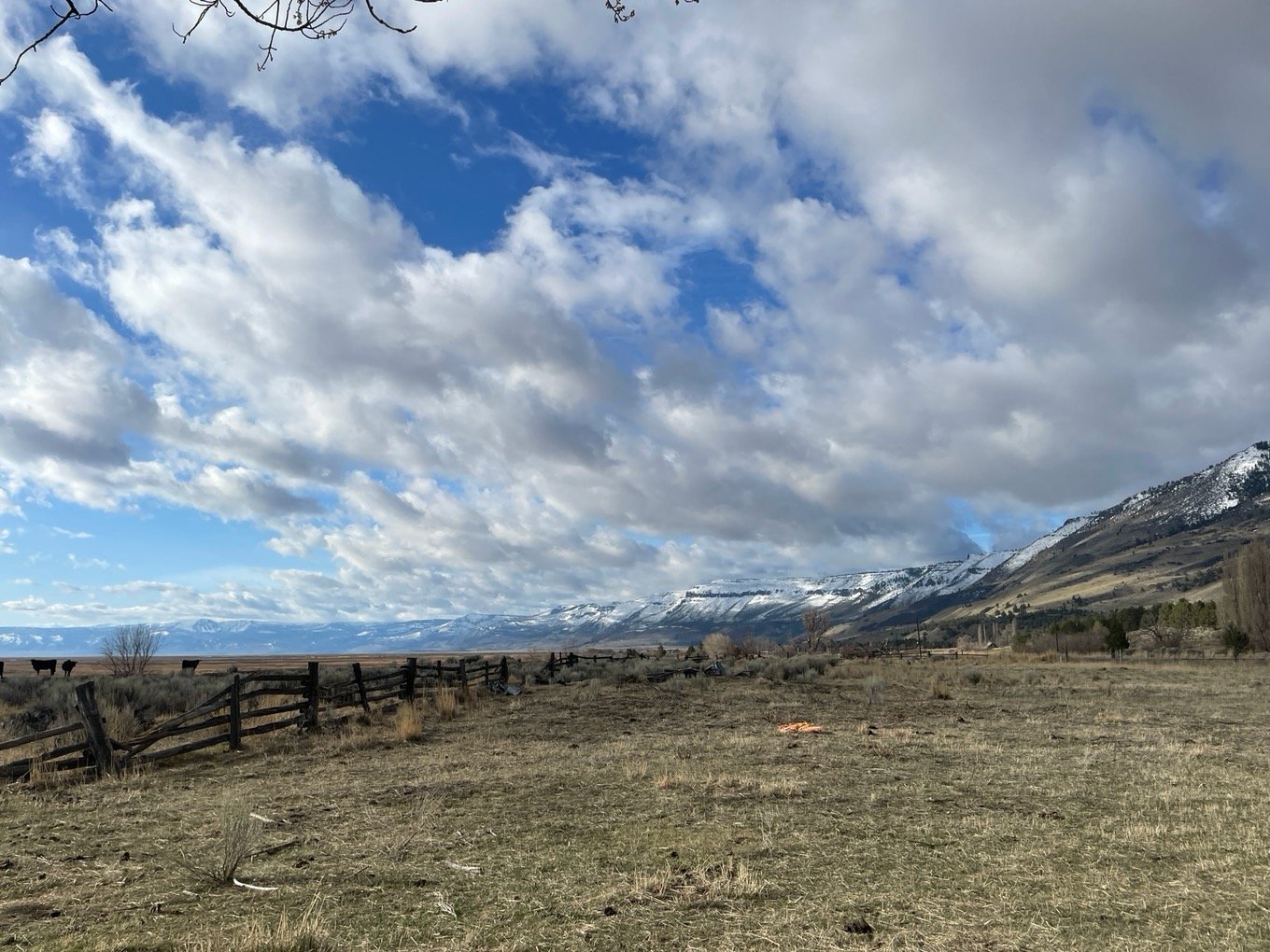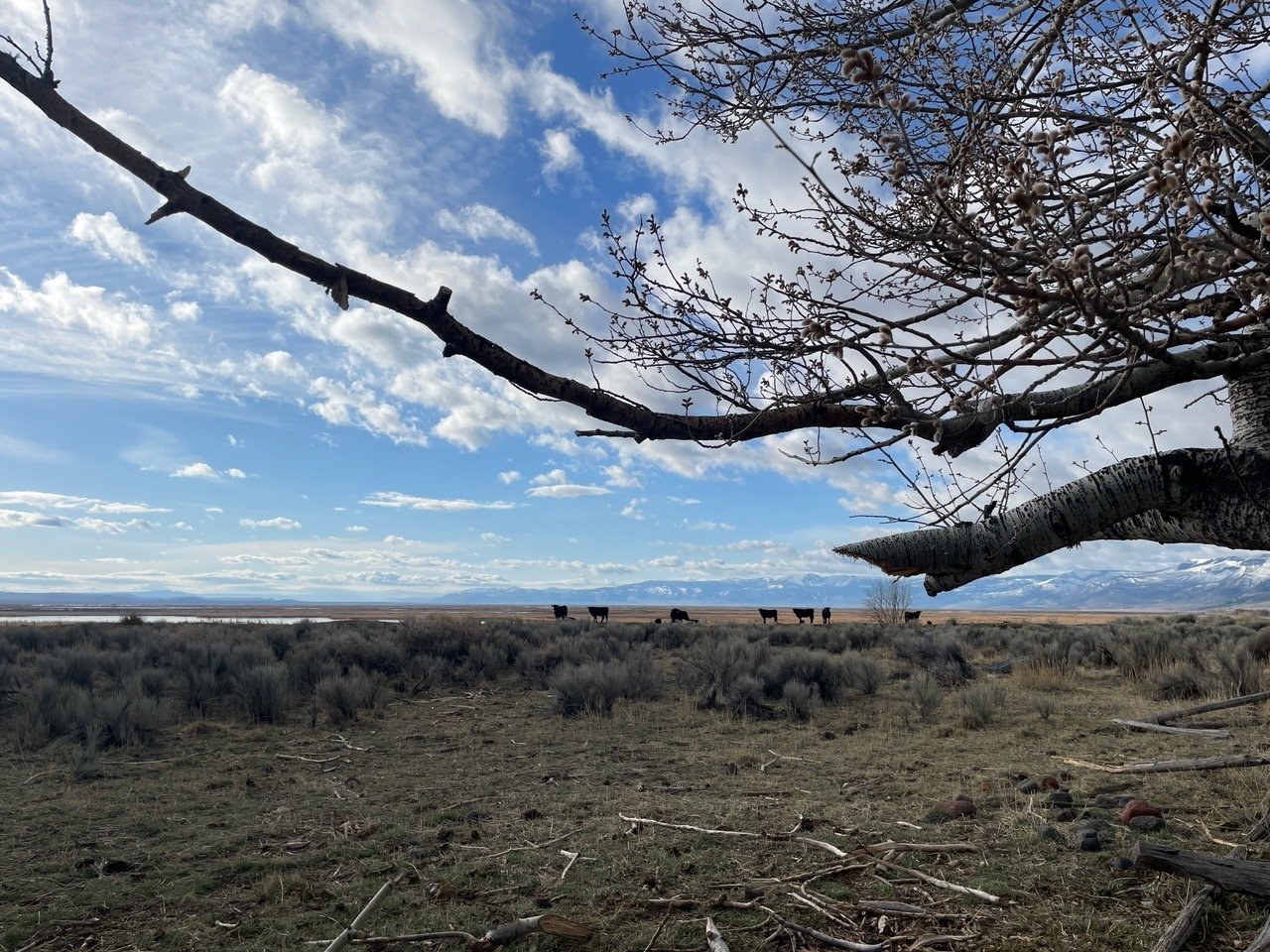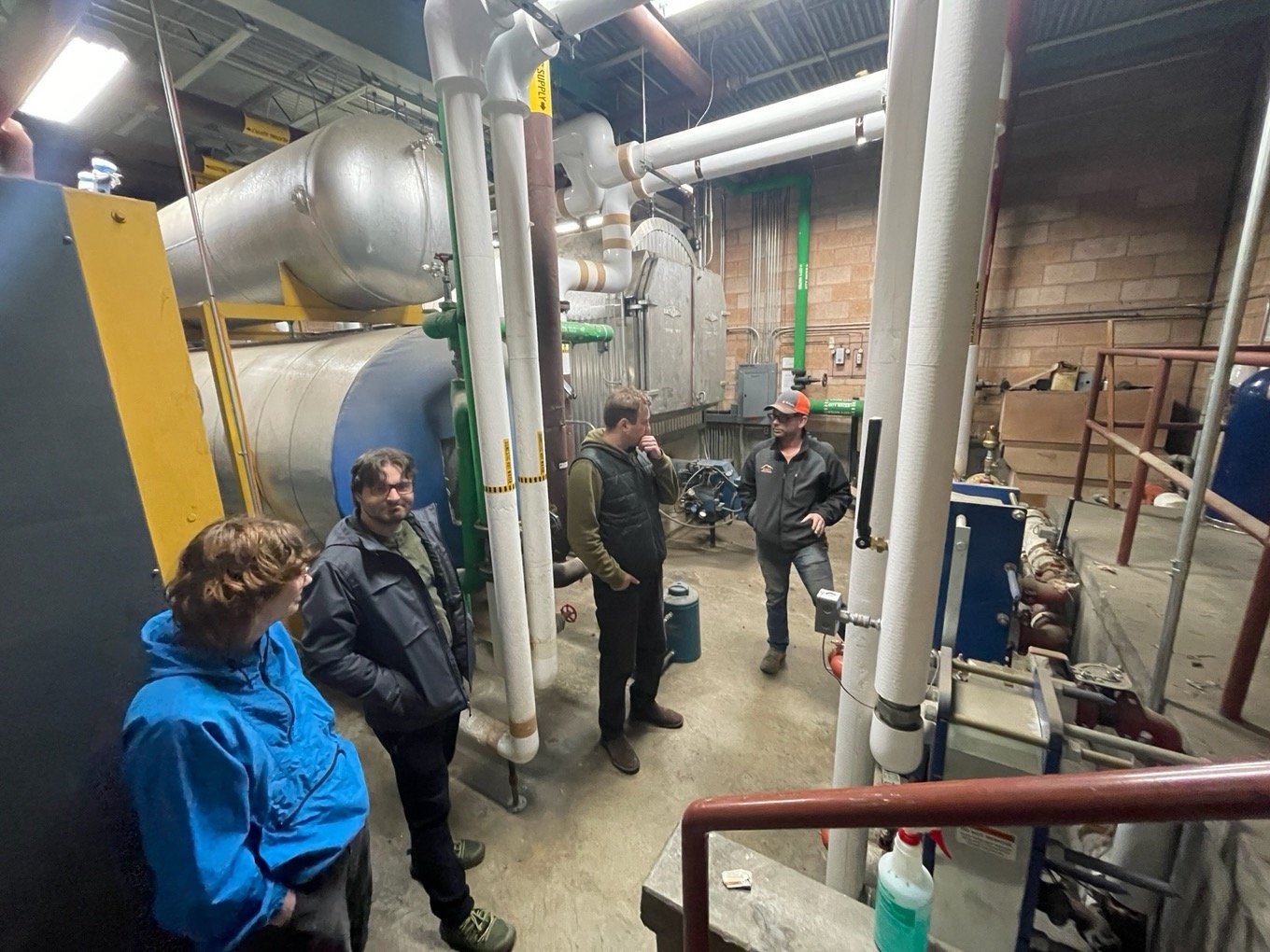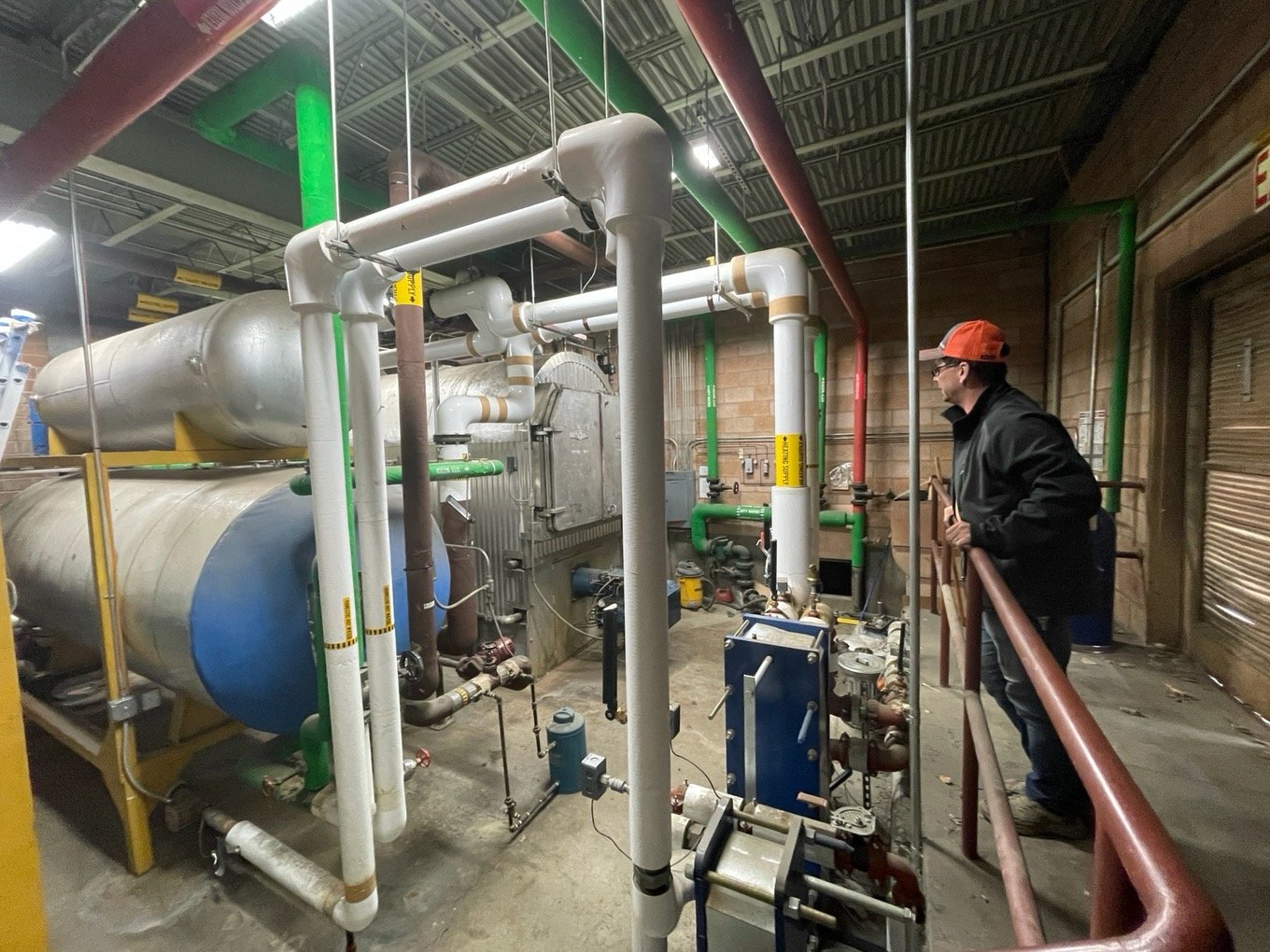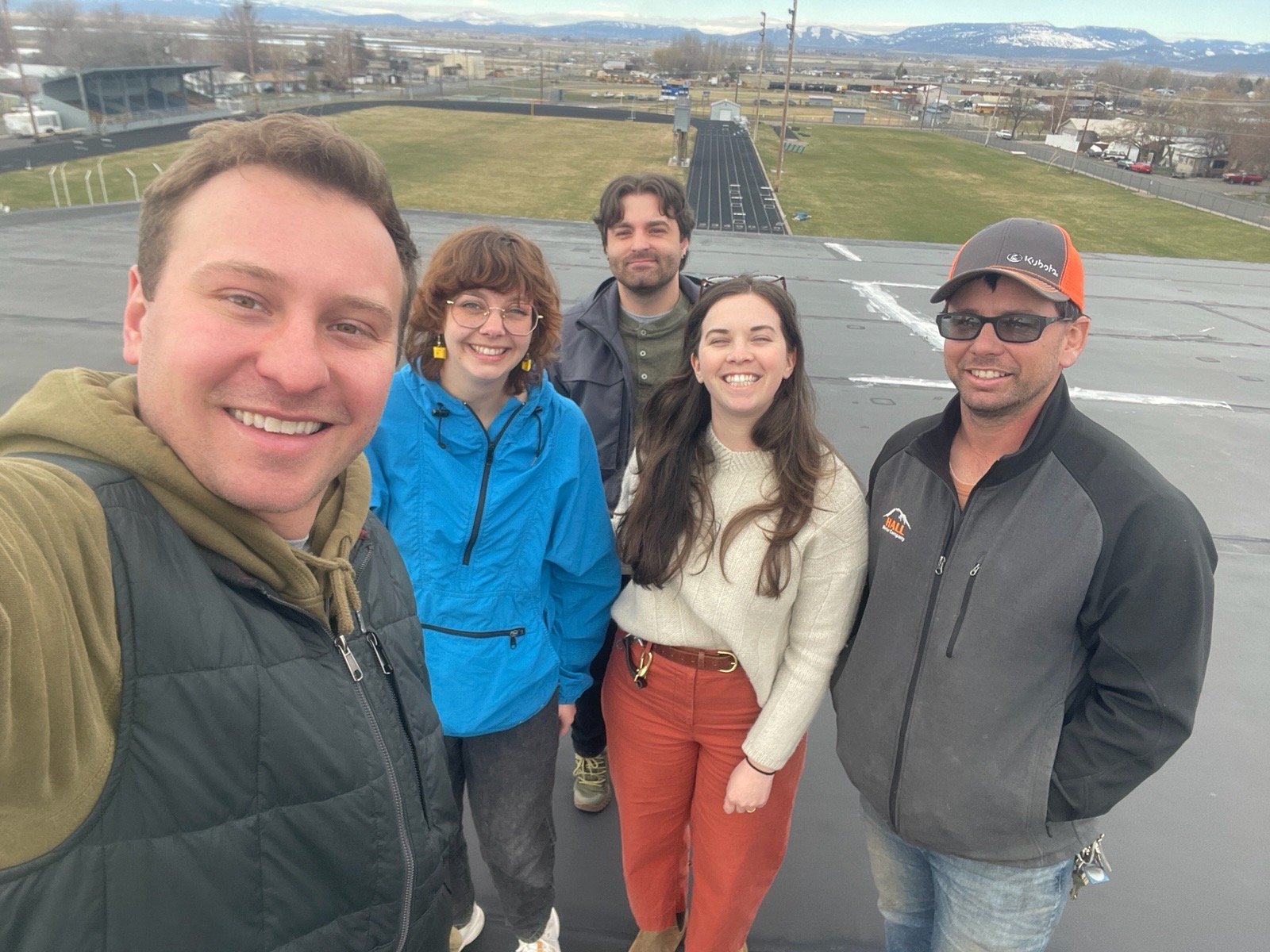On the Road in Oregon: Making Connections in Lake County
This continues "On the Road in Oregon," an exciting blog series that takes you on a journey through the heart of Oregon's diverse communities. In this series, we're exploring the work of the Oregon Department of Energy's Community Navigator Program as its staff fosters connections and collaboration across the state. This story comes from the perspective of Alice Weston, a RARE Member serving as a liaison between ODOE and Central/South Oregon.
When I traveled to Lake County at the end of March, I had no idea how much I would learn from the people I met. I’ve had the opportunity to work with and meet many members of the Lake County Resource Initiative (LCRI) team before, but recently got a chance to visit their community in person and witness their work firsthand. This experience gave me a fresh perspective on the potential of Oregon’s rural energy future.
Lake County is the ancestral homeland of the Klamath , Modoc, Yahooskin, Northern Paiute, Cayuse, Umatilla and Walla Walla tribes. It is a unique place with a geyser, hot springs, and of course many lakes. Classified as not just “rural” but “frontier” by the USDA, Lake County is vast and sparsely populated with the equivalent of one person per square mile. The economy of the county has traditionally been based on agriculture, timber, and government land management, with federal land making up 78 percent of the total land area. Through work and recreation, the people of Lake County are particularly connected to the land around them. The beauty of this landscape makes it easy to understand the community-wide emphasis on intentional stewardship of the land.
Lakeview sits atop a known geothermal resource area. In 2013, the Lakeview School District and Hospital Heating Project replaced outdated heating equipment with geothermal heating infrastructure at five schools and the hospital. The replaced boilers combined consumed 88,150 gallons of #2 fuel oil and 5,456 gallons of propane annually, as measured in a 2019 greenhouse gas emissions study emissions study. This resulted in the reduction of greenhouse gas emissions and drastically reduced the annual heating cost of the school district and the hospital.
As you can imagine, Lake County’s resource and energy needs are quite different than other areas of the state and region. In recent years, Lake County has increased its renewable energy resources and boosted the local economy by implementing biomass, geothermal, and solar projects. Leading the way on these projects I one of Lake County’s most unique features, Lake County Resource Initiative (LCRI), a community-based organization supporting energy savings — from residential to commercial and agricultural. LCRI has been leading the conversation around Oregon’s rural energy needs for decades and the legacy of that work is scattered throughout the county and spilling into the counties around it.
I wanted to visit Lake County in person to learn more about the community's energy needs and the current and future energy projects. When I arrived in Lakeview, I walked into Lake County Resource Initiatives' brand-new offices right in the center of town. When I stepped in the front door, I was thrilled to see their energy team and a very special guest: Jim Walls, LCRI’s founding director. Jim has been retired from the role for a few years now but was gracious enough to take some time to chat about the history of LCRI, Lake County, and the rural energy ecosystem.
Jim is a living legend in the rural energy space. I once heard someone refer to him as the Climate Cowboy, which is, frankly an amazing nickname. Jim started working with LCRI in the 1990s initially on a collaborative project to save the last remaining timber mill and create a sustainable local forestry management practice. Jim was brilliant at adapting as new technology and the economy shifted, while remaining focused on projects and development that benefited the local residents of Lake County. This is work that requires a long-term vision and serious conviction. And while Jim was the initial spark, LCRI’s real gem is the staff that continues that legacy today.
Lake County Resource Initiative’s team is working hard to serve its community well. LCRI serves as the regional administrator for the Oregon Department of Energy’s Community Heat Pump Deployment Program. LCRI also has residential, commercial, and agricultural energy efficiency programs through Energy Trust of Oregon. Additionally, the organization provides technical assistance to local agriculture producers and small business owners through the Rural Energy for America Program (REAP), which ODOE supports through the Oregon Rural Agricultural Energy Assistance Program (ORAEA). All of these efforts — plus the many more programs and projects LCRI supports — are adding up to creating savings for individuals and businesses all across Lake County.
Lake County Commissioner and LCRI Board Chair James Williams also joined the conversation at the LCRI offices that day. Commissioner Williams emphasized the importance of energy work as a driver of economic success for the county as a whole, as well as individual community members. Through energy efficiency projects, community members can benefit from a decreased or even almost eliminated energy bill. Jim added that what was once a dedicated expense (an energy bill) could now become disposable income that they can spend within their community. Small personal economic gains can make a real difference in the economy of a small community. LCRI is also supporting and expanding upon midsized and larger-scale projects that affect the county's energy use at all levels of the economy.
One area of innovation and growth is geothermal. While I was visiting, we took a trip over to Lakeview High School and met with the Facilities Manager to learn more about the current status of the geothermal heating system. He was kind enough to show us around and explain the system, which seems to be serving the school well with the stewardship of a great facilities team. However, the school has additional weatherization and upgrade needs that could amplify the efficiency and savings of the system, so LCRI is working with the school to find resources to support that work. The Community Navigator team has also been able to start the conversation through the Oregon Department of Energy’s Schools team to share more information about the Public Purpose Charge (SB 1149) Schools Program, so they can pursue funding for weatherization and energy system upgrades. Additionally, the city of Lakeview was awarded a Community Renewable Energy Grant from the Oregon Department of Energy to expand Lakeview’s geothermal potential in the commercial-industrial corridors.
Lake County’s multilayer approach to energy innovation and efficiency has led it to be well on its way to its goal of being “Oregon’s most renewable energy county.” And while that is an incredible feat worth noting, I would add that LCRI’s leadership and sincere commitment to the community is the most important point of reflection. LCRI’s work with the support of champions like Commissioner Williams and Jim Walls, has led Lake County to be a leader in the energy sector but more importantly a place for energetic community collaboration and conversation.
